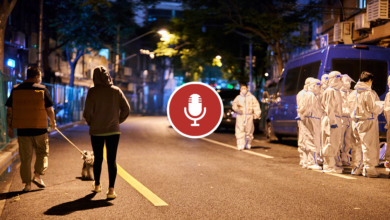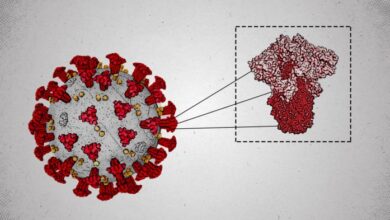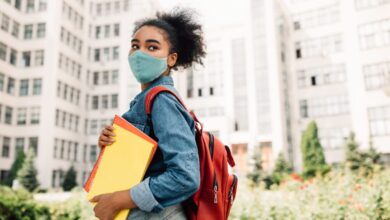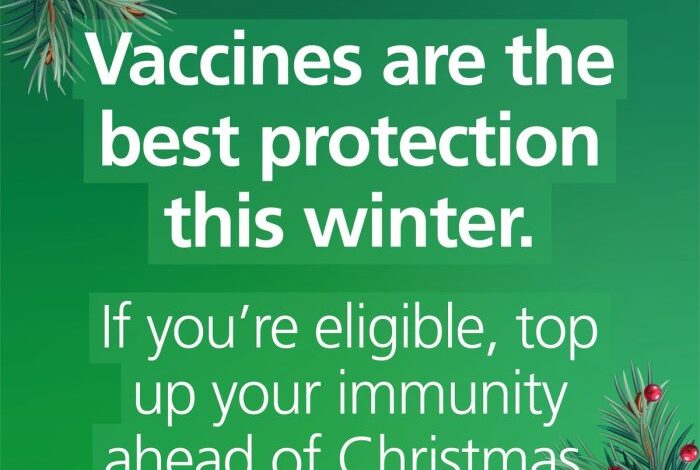
Free Vaccines: Are You Eligible As Winter Illnesses Approach?
See if you are eligible for free vaccines as tripledemic of winter illness approaches – Free Vaccines: Are You Eligible As Winter Illnesses Approach? With winter just around the corner, the threat of a “tripledemic” – a simultaneous surge of flu, COVID-19, and respiratory syncytial virus (RSV) – is looming. These illnesses can be particularly dangerous for vulnerable populations, and the potential impact on our healthcare system is significant.
This is why getting vaccinated is crucial, especially with the availability of free vaccines for many individuals.
Understanding the tripledemic and its potential consequences is essential for making informed decisions about your health. This guide will cover everything you need to know about the tripledemic, including the vaccines available, eligibility criteria, and resources for finding free vaccines in your area.
We’ll also discuss the importance of vaccination, herd immunity, and other preventive measures you can take to stay healthy this winter.
The Tripledemic Threat
Winter is a time for cozy nights by the fire, hot cocoa, and holiday cheer. However, it can also be a time for a surge in respiratory illnesses, particularly during a “tripledemic.” A tripledemic occurs when three major respiratory viruses circulate simultaneously, putting a strain on healthcare systems and potentially leading to a surge in hospitalizations and even deaths.
Understanding the Tripledemic’s Components
The tripledemic typically refers to the co-circulation of influenza, respiratory syncytial virus (RSV), and COVID-19. Each of these viruses can cause significant illness, and their combined presence can create a particularly challenging public health situation.
Influenza
Influenza, commonly known as the flu, is a highly contagious respiratory illness caused by influenza viruses. The flu virus spreads through droplets released when an infected person coughs, sneezes, or talks. The severity of flu symptoms can vary widely, ranging from mild illness to severe complications, including pneumonia, bronchitis, and even death.
According to the Centers for Disease Control and Prevention (CDC), an average of 29,000 to 56,000 deaths are attributed to the flu each year in the United States.
Respiratory Syncytial Virus (RSV)
RSV is a highly contagious respiratory virus that primarily affects infants and young children. The virus spreads through close contact with infected individuals, often through coughing and sneezing. While most RSV infections cause mild, cold-like symptoms, some can lead to serious complications, such as bronchiolitis, pneumonia, and respiratory failure.
In severe cases, RSV can require hospitalization, especially in infants and young children.
With the tripledemic of winter illnesses looming, it’s crucial to get vaccinated. While we’re focused on staying healthy, it’s also important to remember the larger context of events that have shaped our world. For example, the recent article ex feds blast 9 11 panel and bush reminds us of the need for transparency and accountability in government.
Ultimately, whether it’s staying healthy or seeking justice, we need to be proactive and informed citizens. So, check your eligibility for free vaccines and stay informed about the issues that matter.
COVID-19
COVID-19 is a respiratory illness caused by the SARS-CoV-2 virus. The virus spreads through respiratory droplets released when an infected person coughs, sneezes, or talks. The severity of COVID-19 symptoms can vary widely, from mild illness to severe complications, including pneumonia, acute respiratory distress syndrome (ARDS), and even death.
With winter approaching and the tripledemic of flu, RSV, and COVID-19 looming, it’s more important than ever to get vaccinated. Check out what is going on now to stay informed about the latest health recommendations and see if you are eligible for free vaccines.
Protecting yourself and your loved ones is crucial, especially as we head into the colder months.
The World Health Organization (WHO) estimates that over 6.5 million people have died from COVID-19 worldwide.
Vaccine Eligibility and Benefits
The tripledemic, a simultaneous surge of influenza, respiratory syncytial virus (RSV), and COVID-19, is a serious threat to public health. Vaccination is the most effective way to protect yourself and your loved ones from these viruses. This section will discuss the vaccines available for the tripledemic, the eligibility criteria for each vaccine, and the benefits of vaccination.
With winter approaching and the tripledemic looming, it’s crucial to protect ourselves and our loved ones. Checking if you’re eligible for free vaccines is a vital step, especially as we’ve learned from the recent pandemic that there are no shortcuts to genuine security.
Just like Amnesty International advocates for long-term solutions , taking advantage of free vaccines can contribute to our collective well-being and help us navigate the coming months with greater confidence.
Vaccines Available for the Tripledemic
The vaccines available for the tripledemic are:
- Influenza vaccine:The influenza vaccine is available as a shot or a nasal spray. It is recommended for everyone six months of age and older.
- RSV vaccine:An RSV vaccine is available for infants and young children. The Centers for Disease Control and Prevention (CDC) recommends that all infants and young children receive the RSV vaccine.
- COVID-19 vaccine:The COVID-19 vaccine is available for everyone five years of age and older. It is recommended that everyone eligible receive the COVID-19 vaccine, including booster doses.
Eligibility Criteria for the Tripledemic Vaccines
Eligibility criteria for each vaccine vary based on age, health conditions, and other factors.
Influenza Vaccine Eligibility
- Age:The influenza vaccine is recommended for everyone six months of age and older.
- Health conditions:People with certain health conditions, such as chronic lung disease, heart disease, diabetes, or weakened immune systems, are at higher risk of serious complications from influenza. These individuals should get the influenza vaccine every year.
- Pregnancy:Pregnant women are at increased risk of complications from influenza, so it is important for them to get the influenza vaccine during pregnancy.
- Living with or caring for someone at high risk:People who live with or care for someone at high risk of serious complications from influenza should also get the influenza vaccine.
RSV Vaccine Eligibility
- Age:The RSV vaccine is available for infants and young children.
- Premature birth:Infants born prematurely are at increased risk of severe RSV infection, so it is important for them to get the RSV vaccine.
- Chronic lung disease:Children with chronic lung disease are also at increased risk of severe RSV infection and should get the RSV vaccine.
- Weakened immune system:Children with weakened immune systems are at increased risk of severe RSV infection and should get the RSV vaccine.
COVID-19 Vaccine Eligibility
- Age:The COVID-19 vaccine is available for everyone five years of age and older.
- Health conditions:People with certain health conditions, such as chronic lung disease, heart disease, diabetes, or weakened immune systems, are at higher risk of serious complications from COVID-19. These individuals should get the COVID-19 vaccine.
- Pregnancy:Pregnant women are at increased risk of complications from COVID-19, so it is important for them to get the COVID-19 vaccine during pregnancy.
- Living with or caring for someone at high risk:People who live with or care for someone at high risk of serious complications from COVID-19 should also get the COVID-19 vaccine.
Benefits of Vaccination
Vaccination is the most effective way to protect yourself and your loved ones from the tripledemic. The benefits of vaccination include:
- Reduced risk of severe illness:Vaccination can significantly reduce the risk of developing severe illness from influenza, RSV, and COVID-19.
- Reduced risk of hospitalization:Vaccination can also reduce the risk of hospitalization due to these viruses.
- Reduced risk of death:Vaccination can also reduce the risk of death from influenza, RSV, and COVID-19.
Finding Free Vaccine Resources: See If You Are Eligible For Free Vaccines As Tripledemic Of Winter Illness Approaches

The Tripledemic is a serious threat, but thankfully, vaccines are available to help protect you and your loved ones. If you’re concerned about the cost of vaccines, know that there are many resources available to help you get vaccinated for free.
This blog post will provide you with information on where to find free vaccines and how to access them.
Free Vaccine Resources
Here are some resources that can help you find free vaccines in your area:
| Resource Name | Eligibility Criteria | Contact Information | Website Link |
|---|---|---|---|
| The Vaccines for Children (VFC) Program | Children under 19 years of age who meet certain income guidelines | Contact your local health department or doctor’s office | https://www.cdc.gov/vaccines/programs/vfc/index.html |
| The Adult Vaccines for the Underserved (AVU) Program | Adults who meet certain income guidelines | Contact your local health department or doctor’s office | https://www.cdc.gov/vaccines/programs/avup/index.html |
| Community Health Centers | Low-income individuals and families | Contact your local community health center | https://www.hrsa.gov/find-a-health-center/ |
| Pharmacies | Some pharmacies offer free or low-cost vaccines through various programs | Contact your local pharmacy | https://www.cvs.com/minuteclinic/services/vaccines |
| Local Health Departments | Many local health departments offer free or low-cost vaccines | Contact your local health department | https://www.cdc.gov/vaccines/programs/vfc/index.html |
| Community Organizations | Various community organizations offer free or low-cost vaccines | Contact your local community organizations | N/A |
Tips for Finding Free Vaccines in Your Local Area
Here are some tips for finding free vaccines in your local area:
- Contact your local health department.Health departments often offer free or low-cost vaccines, especially for children.
- Check with your doctor’s office.Some doctor’s offices offer free or discounted vaccines to their patients.
- Look for community health centers.Community health centers often provide free or low-cost healthcare services, including vaccines.
- Contact your local pharmacy.Some pharmacies offer free or low-cost vaccines through various programs.
- Check with community organizations.Some community organizations offer free or low-cost vaccines, especially for low-income families.
- Search online.There are many websites that list free or low-cost vaccine resources, such as the CDC website and the Health Resources and Services Administration (HRSA) website.
Importance of Vaccination
Vaccination is a powerful tool in protecting individuals and communities from infectious diseases. It works by introducing a weakened or inactive form of a virus or bacteria into the body, triggering the immune system to develop antibodies that can fight off future infections.
This process, known as immunization, significantly reduces the risk of getting sick and spreading the disease.
Herd Immunity
Herd immunity, also known as community immunity, is a crucial concept in public health. It occurs when a significant portion of the population is immune to a disease, making it difficult for the disease to spread. This immunity can be achieved through natural infection or vaccination.
When a high percentage of the population is vaccinated, it creates a protective barrier around those who are unable to be vaccinated, such as infants or individuals with compromised immune systems. This barrier significantly reduces the risk of outbreaks and protects vulnerable populations.
“Herd immunity is a powerful tool for protecting individuals and communities from infectious diseases.”
Benefits of Vaccination
- Reduced risk of infection:Vaccinations significantly decrease the chances of getting sick from a specific disease.
- Reduced severity of illness:Even if a vaccinated individual does get sick, the illness is often milder and less likely to lead to complications.
- Prevention of outbreaks:Vaccinations contribute to herd immunity, making it more difficult for diseases to spread and cause widespread outbreaks.
- Protection of vulnerable populations:Vaccination protects individuals who cannot be vaccinated, such as infants, pregnant women, and those with weakened immune systems.
Additional Preventive Measures
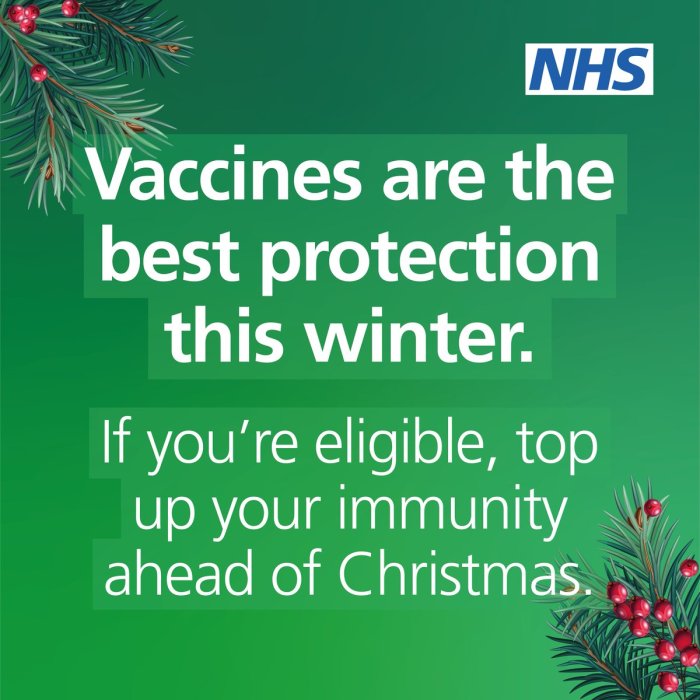
While vaccination is a crucial step in protecting yourself and others from the tripledemic, it’s not the only defense. Several other preventive measures can significantly reduce your risk of contracting and spreading these illnesses.
Maintaining a Healthy Lifestyle
A strong immune system is your best defense against any illness. Adopting a healthy lifestyle can significantly boost your body’s natural defenses.
- Eat a balanced diet rich in fruits, vegetables, and whole grains.These foods provide essential vitamins, minerals, and antioxidants that support immune function.
- Get regular exercise.Physical activity helps improve circulation, strengthens the immune system, and reduces stress.
- Get enough sleep.Sleep deprivation weakens the immune system, making you more susceptible to infections. Aim for 7-8 hours of quality sleep each night.
- Manage stress.Chronic stress weakens the immune system. Find healthy ways to manage stress, such as exercise, meditation, or spending time in nature.
- Avoid smoking and excessive alcohol consumption.These habits weaken the immune system and increase your risk of developing chronic diseases.
Handwashing and Respiratory Etiquette, See if you are eligible for free vaccines as tripledemic of winter illness approaches
Simple hygiene practices can go a long way in preventing the spread of germs.
- Wash your hands frequently with soap and water for at least 20 seconds.Pay particular attention to areas like your fingertips, nails, and wrists.
- Use alcohol-based hand sanitizer if soap and water are not readily available.Sanitizer should contain at least 60% alcohol to be effective.
- Avoid touching your eyes, nose, and mouth.These areas are entry points for germs.
- Cover your mouth and nose with a tissue or your elbow when you cough or sneeze.This helps prevent the spread of respiratory droplets.
- Clean and disinfect frequently touched surfaces.This includes doorknobs, light switches, countertops, and phones.
Social Distancing and Mask-Wearing
When cases are high, consider these additional measures:
- Maintain physical distance from others, especially in crowded or enclosed spaces.Aim for at least 6 feet of separation.
- Wear a well-fitting mask in public settings, especially indoors.Choose a mask that fits snugly over your nose and mouth, with multiple layers of fabric.
- Avoid close contact with people who are sick.Stay home if you are feeling unwell, and encourage others to do the same.


